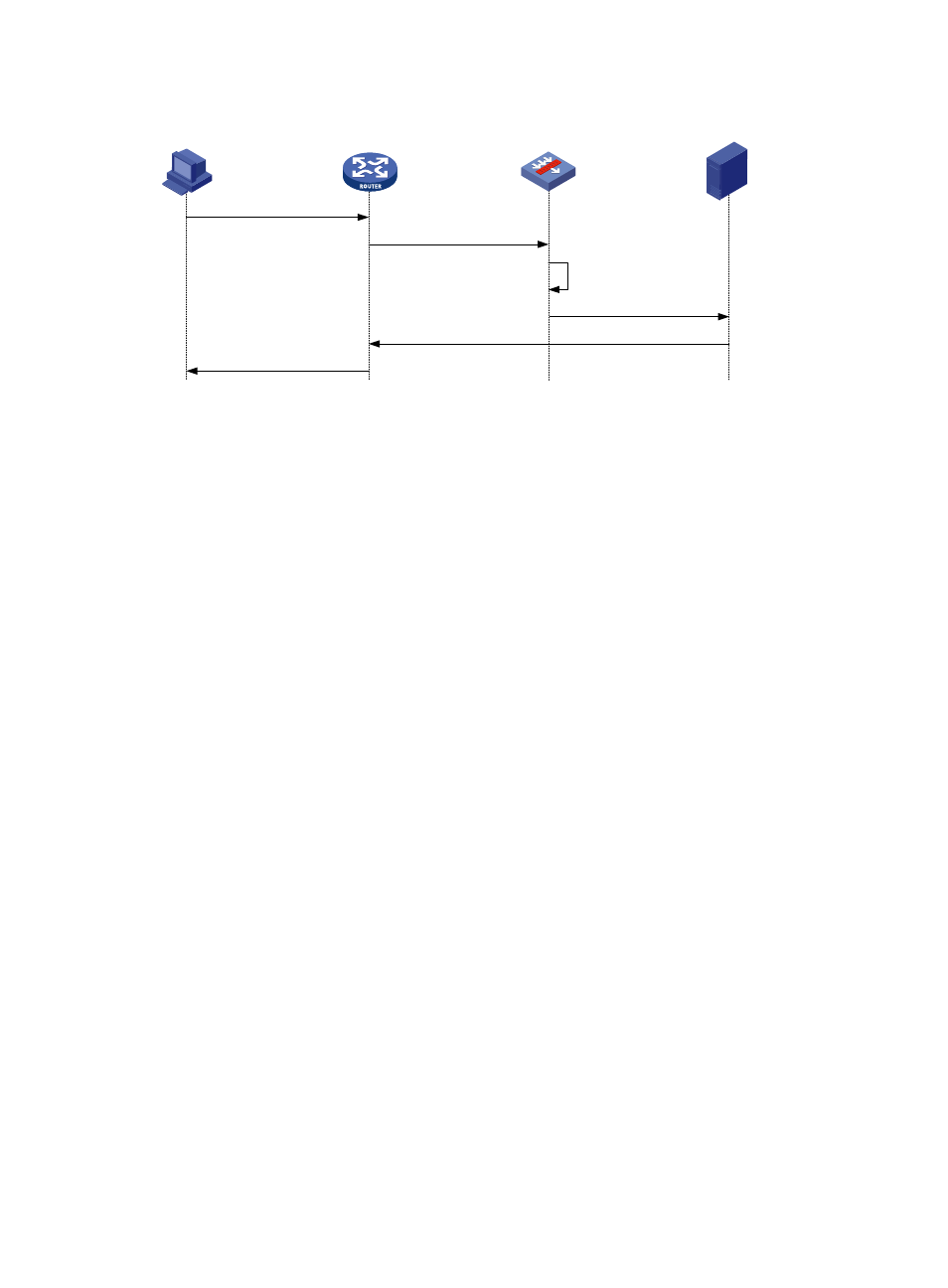H3C Technologies H3C SecBlade LB Cards User Manual
Page 10

4
Figure 4 Work flow of DR-mode Layer 4 server load balancing
DR-mode Layer 4 server load balancing operates in the following way:
1.
The host sends a request, using VSIP as the destination address.
2.
Upon receiving the request, the general device forwards it to LB product. The VSIP cannot be
contained in an ARP request and response, so the general device only forwards the request to the
LB product.
3.
Upon receiving the request, the LB product uses an algorithm to calculate to which server it
distributes the request.
4.
The LB product distributes the request. The LB product encapsulates VSIP as the destination IP
address, and the server's MAC address (obtained through ARP) as the destination MAC address.
In this way, the request can be forwarded normally to the server.
5.
The server receives and processes the request, and then sends a response. The destination IP
address of the response is the host IP.
6.
After receiving the response, the general device forwards the response to the host. The response
is addressed to the host rather than the LB product, so DR-mode server load balancing is called.
Server
(1) Request
LB product
Host
(4) Distribute request
(5) Response
(3) Scheduler
(6) Forward response
General device
(2) Forward request
